Hogging Covid vaccines endangers all nations, warns South Africa expert
- Published
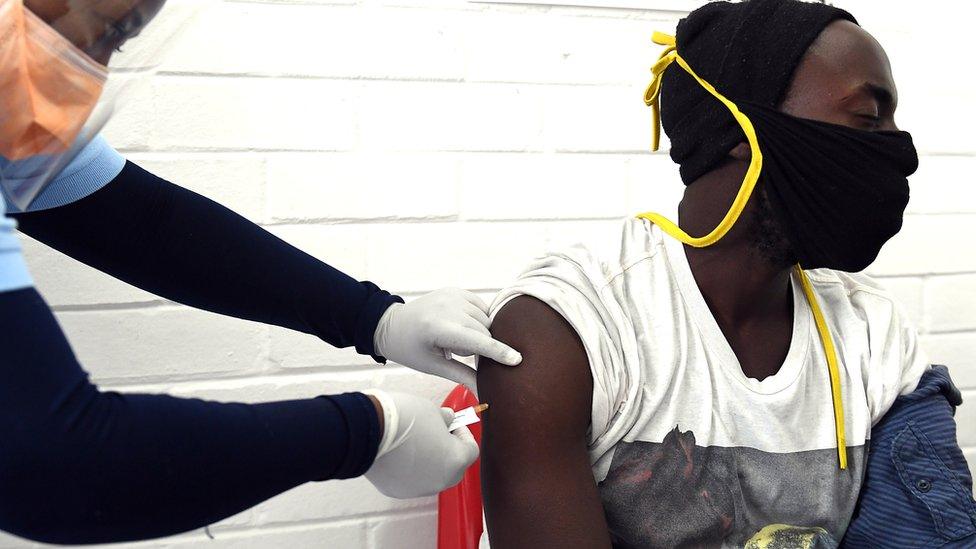
Clinical trials for the Oxford-AstraZeneca vaccine were carried out in South Africa
As South Africa battles a highly infectious new mutation of Covid-19, the country's leading expert on the pandemic has urged wealthier nations not to hoard vaccine supplies, describing the behaviour as "unconscionable" and warning that "no-one is safe until everyone is safe".
"Fundamentally, there's a mistaken belief by some countries that they can vaccinate their populations and they'll be safe.
"It simply is not true. In this world that we live in, with this coronavirus, no-one is safe until everyone is safe," said Prof Salim Abdool Karim, chair of the government's coronavirus advisory panel.
There's no endgame that sees one country succeeding in controlling the virus while the rest of the world is dealing with rampant spread"

He warned of the risk of a long, international "cat and mouse" chase to defeat Covid-19 with constantly updated vaccines if the pandemic was allowed to keep spreading in countries which were unable to vaccinate their populations in good time.
"There's no endgame that sees one country succeeding in controlling the virus while the rest of the world is dealing with rampant spread. For me, we all need to stand together. It's in everyone's interests.
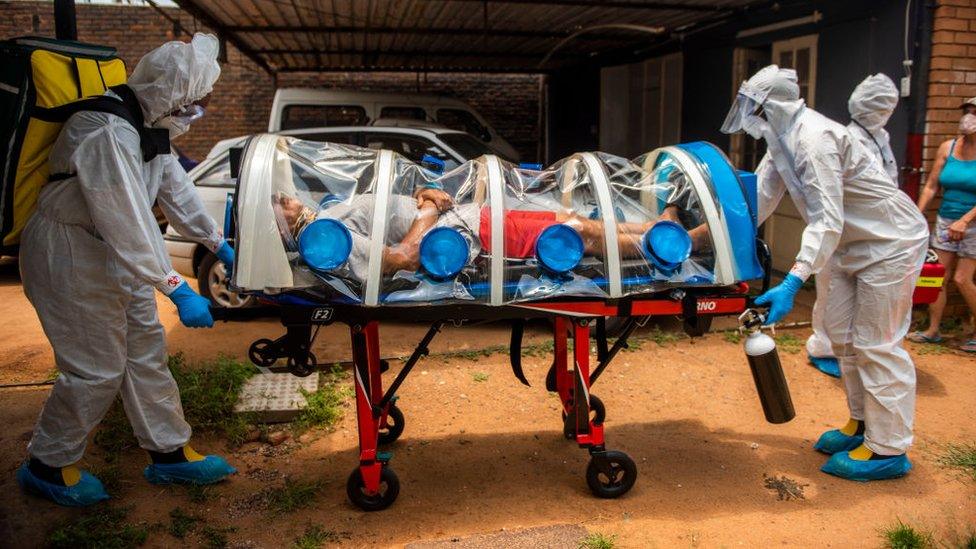
South African health workers have taken elaborate measures to curb the spread of Covid-19
"To me it would be unconscionable that a country like the US or UK to start vaccinating low risk young people, when we here in Africa haven't even started vaccinating healthcare workers and the elderly.
"At the rate at which things are going, that is what's going to happen," he warned.

More on South Africa's Covid crisis:

South African hospitals have been grappling with a huge second wave of infections caused by a variant of the virus, with 23 different mutations, first discovered here in November.
"It took us aback. It suggests that if these kind of 23 mutations can occur just like that, it's going to occur everywhere else, and it's going to occur quite widely," Prof Karim told the BBC.
"The scenario that we could just inject people once and there would be life-long protection may not actually apply."
'Mutations are wake-up call'
The US and UK have introduced restrictions for travellers from southern Africa in response to the new variant, but the scientist who discovered the recent mutations has dismissed the move as ineffective.
"I find it almost like silly - this trying to block a country, because we know how fast this virus spreads and in how many places," said Prof Tulio De Oliveira, a leading genetic scientist heading a surveillance laboratory in South Africa's coastal city of Durban.
He said governments should avoid virus "nationalism" and focus instead on broad quarantine rules applied equally to all international travellers.
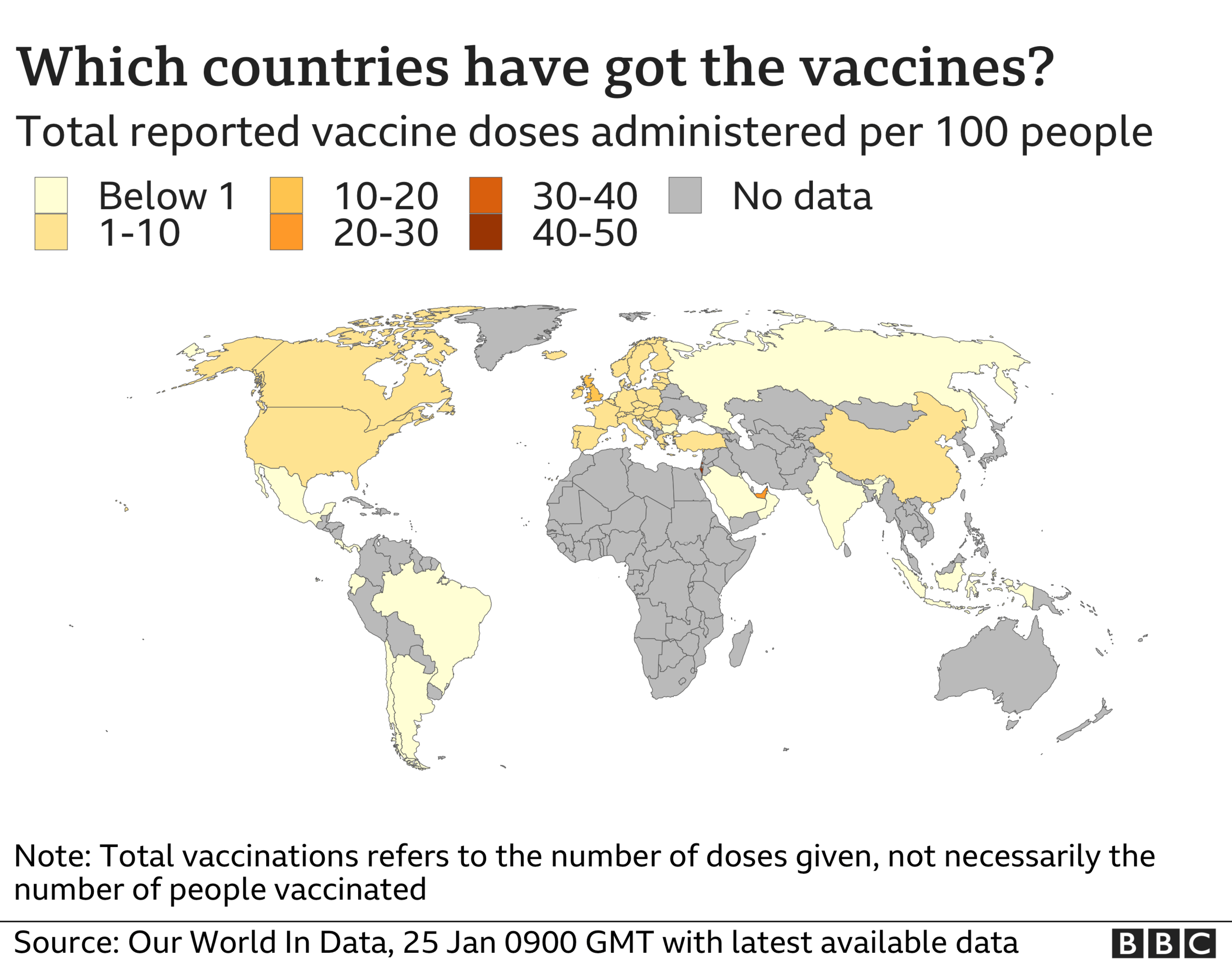

Prof De Oliveira said the experience of discovering the virus mutations in South Africa was "basically a wake-up call to the whole world to treat the pandemic as a global problem, and that we work together… to stop transmission in the whole world otherwise these variants will keep appearing."
Scientists in South Africa and other countries are currently analysing the 501Y.V2 variant discovered here to establish the extent to which it may be resistant both to current vaccines and to antibodies in people who have already been infected by earlier variants of the coronavirus. Results are anticipated within the next few weeks.
"We're going to have to ensure our vaccines are able to neutralise [new variants] because if they're not that means we're back to square one and then we've got to play this cat and mouse game," said Prof Karim.
Although there is frustration in many poorer nations about the unequal roll out of vaccines, Prof Karim said he remained optimistic that, as new vaccines and new supply lines emerged, "then the demand and supply will be in a much better position.
"Then people will not have to scramble, hoard, behave abominably by trying to scoop up all the vaccines, because there's many more available, they all work, and you just buy what you need and use what you need."
More on fair access to vaccines:
WHO: "Younger healthier people could wait for the vaccine"
Related topics
- Published1 July 2022
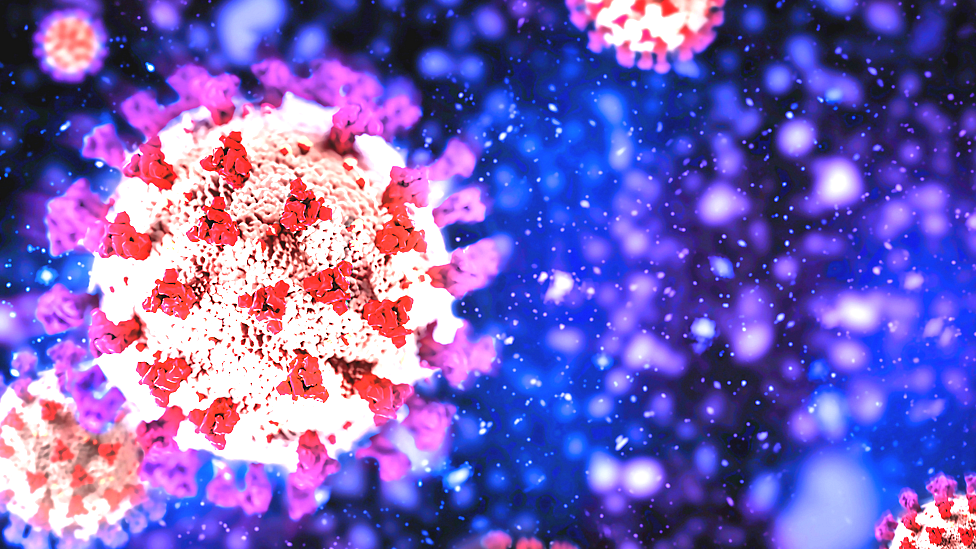
- Published17 February 2021
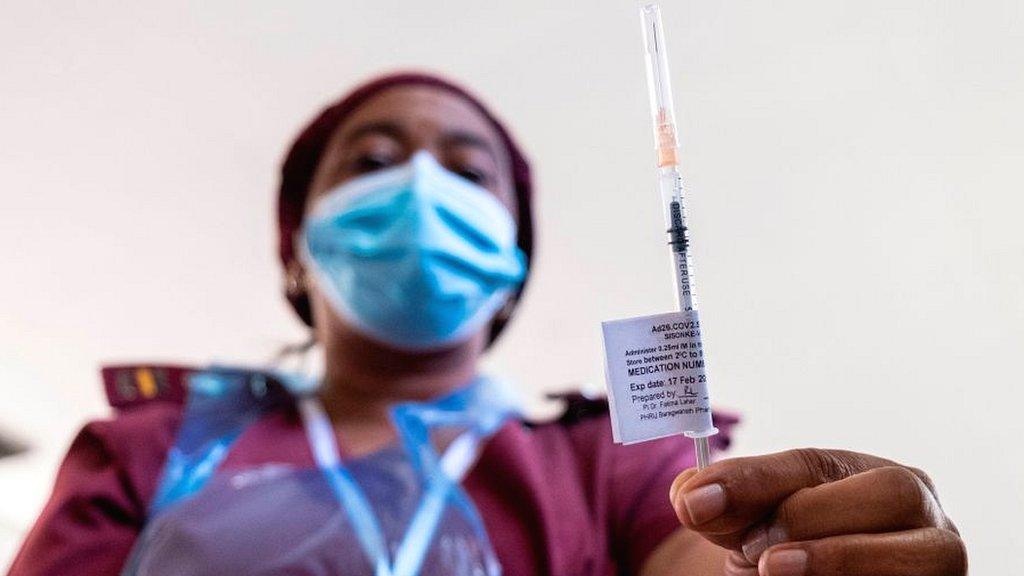
- Published22 November 2020
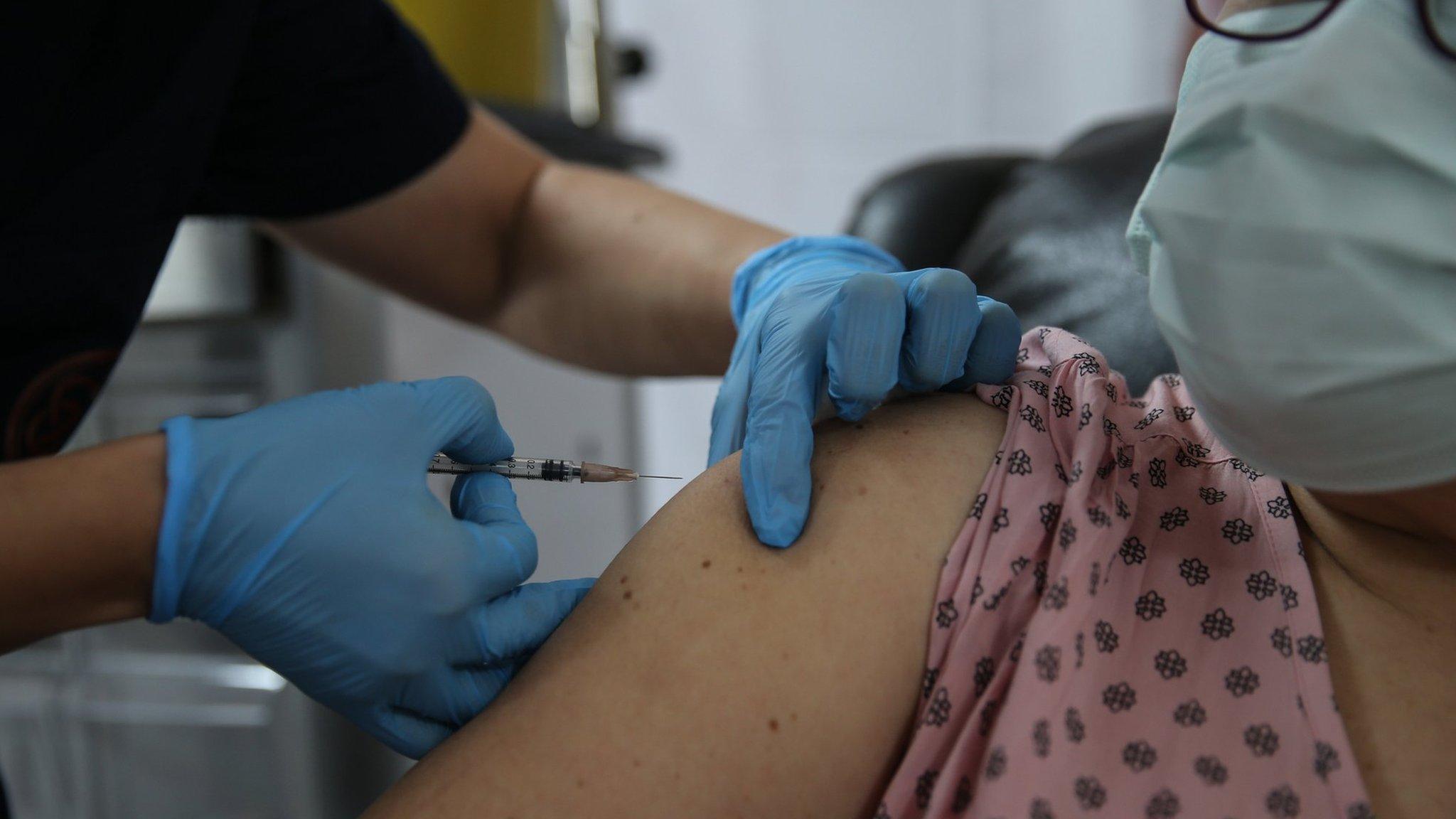
- Published5 July 2022
